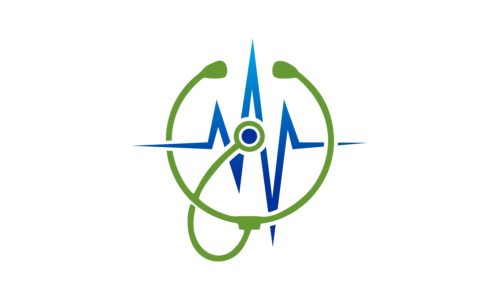Hydraulic Fasting Nazarene Medicinal Institute
Hydraulic fasting is necessary to help people recover from mild to severe health conditions. Some of the most common ones are high blood pressure, asthma, allergies, chronic headaches, inflammatory bowel disease (ulcerative colitis and Crohn’s disease), irritable bowel syndrome, adult onset diabetes, heart disease, degenerative arthritis, rheumatoid arthritis, psoriasis, eczema, acne, uterine fibroids, benign tumors and systemic lupus erythematosus.
During your hydraulic fasting experience, your body can use all its reserve energy to heal, restore, and optimize compromised organs by eliminating accumulated toxins and waste products. The body is very intelligent. When we fast, the body starts using the trash for energy first…the damaged cells, tumors, waste products, etc.

We invite you to encounter a Healthy Beach Vacation next year and the powerful rejuvenating potential that hydraulic fasting offers your body, mind, and spirit. Currently seeking fasters with testimonials to share!!!
Fasting Misconceptions
Fasting is one of the most profound yet misunderstood therapeutic approaches in health care.
The word “fasting” comes from the Old English “faestan,” which means to be strict and have discipline. By definition, water-only fasting is the complete abstinence from all food and liquids except water for an extended period of time.
I’m sure you can appreciate that in our culture of gluttony and overeating, the idea of voluntarily abstaining from food (unless there is some enforced famine) may seem somewhat absurd and insane. Yet, there is an extensive body of evidence, including lab studies involving a variety of species and clinical observations in humans, supporting the use of water-only fasting for a wide range of health problems, including obesity. These data are consistent with the idea that throughout evolution, all life forms, from bacteria to humans, have experienced periods of starvation and food deprivation alternating with periods of abundant food availability. As a result, they have evolved the ability to adapt to long periods of starvation.
The loss of appetite and fasting are natural to all animals, including humans, in response to disease and stress. If you observe animals in the wild, or even your own house pets, you will notice that when they are injured or diseased they will often retire to a quiet and comfortable place, drink water and stop the intake of all food. The loss of appetite in disease is also present in humans. But the idea of complete abstinence from food for most people in our culture is such an abhorrent, frightening notion that they will continue to eat even when all their natural instincts are telling them to stop. However, it is important to understand that when less energy is required for eating, and digesting and procuring food, more energy is available for healing and repair.
Where Does Energy Come from During Fasting?
The body has a deep-rooted need for energy and the sugar in plants that provide it. Because sugar (glucose) is needed to produce energy in the body, the food we eat must replenish and maintain adequate blood sugar levels. However, since elevated blood sugar levels can be dangerous, it is critical that blood sugar is maintained in a well-defined range of normal. If you over-eat sugar and processed foods, sugar levels in the blood can increase to toxic levels beyond the normal needs of the body. The body protects itself by removing excess sugar from the bloodstream and storing it in the liver and muscles as glycogen for a future time of need. If you consume more sugar than what the bloodstream can handle, and what the liver and muscles can accept, the surplus will be moved by the body into fat cells for long-term energy storage, contributing to fat and weight gain.
When you stop eating, blood sugar levels drop. As a result, the body begins to access the glycogen that is stored in the liver to replenish the declining blood sugar level. However, the glycogen reserve in the liver is typically depleted within the first 24 hours of fasting, and if you continue to fast, the body needs to find some way to satisfy its blood sugar and energy needs. Therefore, by the second day of fasting, the amino acids from protein in our muscles, and glycerol from the fat in our fat cells are used to create sugar. This process of creating sugar from protein and fat is called “gluconeogenesis”—as in gluco(glucose), neo (new), genesis(creation)—the creation of new forms of sugar from other existing nutrients. By the third day of fasting, the metabolism of the building blocks of fat (fatty acids) from body fat becomes a dominant source of energy for the needs of the brain and body, thereby conserving and sparing protein.2,3,4 Some scientists estimate that a person between 150–160 pounds can obtain basal caloric requirements from their fat reserves for up to two to three months of fasting.

If you’ve been looking up ways to lose weight, you’ve probably heard about water fasting. It has recently become a popular method for speedy weight loss. Social media is all the rage about it, with before and after transformation photos popping up daily.
Water fasting is a type of fast that restricts the consumption of everything except water. Most water fasts last 24–72 hours. Fasts longer than this should be done under medical supervision.
Even herbal teas, black coffee, calorie-free drinks, and supplements are not allowed during water fasting. The juice cleanse and lemon detox cleanse are other methods modeled after this fast.
The water-only fast method is somewhat inspired by intermittent fasting, which has shown well-documented and evidence-based results for weight loss, immune system, and metabolism. The studies cited below apply to all types of intermittent fasting, a category that water fasting falls under.
1. Activates Autophagy
Autophagy is a fundamental process of cleaning out damaged cells, to regenerate newer, healthier cells. Basically, your body’s cells eat themselves and clean out any unnecessary or damaged cellular components. If these damaged parts accumulate in the cell, they can make it difficult for your cells to repair themselves and regrow vital structures, which is a risk factor for many cancers. This is why autophagy is essential for keeping cells healthy. It can help prevent cancer cells from growing. Several animal studies suggest that autophagy may also help protect against diseases like Alzheimer’s, and heart disease.
The nutrient deficit is a key activator of autophagy which is why water fasting activates it. Food restriction for 24 or 48 hours induces fatty change and autophagy in the liver. It peaks around 32 to 48 hours of fasting after which its intensity drops and stabilizes.
2. Helps in Lowering Blood Pressure
Water fasting is considered a safe and effective method of bringing high blood pressure to a normal level. This is one of the water fasting benefits that is also useful in helping people to take on health-promoting behavioral changes in their day-to-day lives.
This study shows that longer, medically supervised water fasts may help people with high blood pressure to lower their blood pressure.
In another study, 68 people with borderline high blood pressure water fasted for around 14 days under medical supervision. At the end of the fast, 82% of people had a blood pressure that was now within a healthier range. Additionally, the average drop in blood pressure was also significant.
Other studies exist that prove the same, which only strengthens the idea that water fasting could lower your blood pressure.
3. Induces Ketosis and Fat Loss
When your body doesn’t have enough carbohydrates to burn for energy, it goes through a process called Ketosis. During this process, your body burns the stored fat to make ketones, which are used for fuel. Ketosis is a metabolic process that forces your body to use up the fat is stored in case you’d have no food in the future. This results in fat loss, which is one of the most sought-after water fasting benefits.
In the first 24-48 hours of water fasting, your body burns the stored glycogen for energy. After day two, your body enters into the state of ketosis. Water fasting induces ketosis more quickly than through Keto or other low-carb diets.
4. Improves Insulin and Leptin Sensitivity
Diabetes is a disorder in the way the body uses glucose, a sugar that is required to generate fuel for the body. When blood sugar levels rise, the pancreas produces insulin, the hormone which signals cells to take sugar from the blood. Fat cells store extra glucose in the form of fats. In the common type 2 form of diabetes, cells lose their insulin sensitivity. This is also called insulin resistance which is recognized as a predictor of type 2 diabetes, heart disease, and obesity.
Insulin and leptin are both important hormones for metabolism. The former helps the body store nutrients from the bloodstream, while the latter helps the body feel full.
This study shows that water fasting can make your body more sensitive to leptin and insulin, making these hormones more effective.
5. Reduces the Symptoms of Metabolic Syndrome
A metabolic syndrome is a group of risk factors that raises the risk for heart disease, diabetes, stroke, and other illnesses. These risk factors occur together when your body is unable to regulate cholesterol, certain proteins, and glucose properly. Most people with this syndrome already have insulin resistance that we mentioned earlier.
Heart disease is a condition in which a waxy substance called plaque, builds up in the arteries that supply blood to the heart. It hardens and narrows the arteries, reducing the blood flow. This can lead to chest pain, heart attack, heart damage, or even death.
This study shows that water fasting helps reduce or eliminate the symptoms of metabolic syndrome. The results of the study are promising as the 5-day water fasting showed many critical beneficial effects without toxicity.
6. Lowers the Risk of Several Chronic Diseases
There is evidence that water fasting can lower the risk of chronic diseases like diabetes, cancer, and heart disease. Water fasting can significantly lower your blood levels of cholesterol and triglycerides — two risk factors for heart disease.
Several animal studies have found that water fasting may protect the heart against damage from free radicals. Free radicals are reactive atoms that contribute to tissue damage in the body. They play a significant role in many chronic diseases.
Another animal study has also found that water fasting may suppress genes that help cancer cells grow. It may also improve the effects of chemotherapy.
Dr. Frank Sabatino, current contributor and special guest host of the Balance for Life Retreat Program, discusses the benefits of water fasting for fighting cancer in this interview.
7. Improves Quality of Sleep
Melatonin, also called the sleep hormone, plays an important role in the body’s sleep-wake cycle. Its production increases with evening darkness, promoting healthy sleep and regulating your circadian rhythm.
Scientists believe that insulin and melatonin have a hostile relationship, meaning they take turns suppressing each other. Insulin levels drop at night in response to an increase in melatonin and melatonin levels are low during the day in response to high insulin levels.
A study shows that short-term modified water fasting can improve sleep patterns and daytime alertness. It causes your insulin levels to drop and melatonin levels to rise, which helps you sleep better and on time.
8. Reduces Inflammation
Inflammation is another word for swelling. It is a reaction from your white blood cells to safeguard your body from viruses, bacteria, and other foreign invaders that can make you ill. Thus, normal levels of inflammation within the body are necessary as your immune system depends on it. But when the body goes through the inflammation process even when there are no invaders to combat, it might begin attacking otherwise healthy tissue. Inflammation can be acute or chronic. Having diseases and/or conditions such as Alzheimer’s, asthma, diabetes, heart disease, and cancer puts you at a higher risk of developing chronic inflammation.
This study has shown that water fasting is effective in treating inflammation since it induces large anti-inflammatory actions in the body.
Many foods like processed meat, alcohol, refined carbohydrates, seed and vegetable oils, etc can worsen inflammatory symptoms. When you eat mindfully or avoid all food with a water-only fast, it is possible to lessen your inflammatory symptoms. This happens due to autophagy, a process mentioned earlier, during which your cells eat their old and damaged parts so the remaining cell is healthier. If the cell can’t be salvaged, it is completely destroyed. Thus, more monocytes aka the largest white blood cells are regenerated to prevent unnecessary immune system responses.
